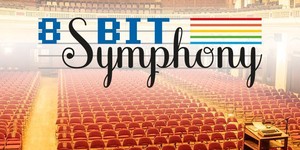Computer History Museum saves Eudora
May 23, 2018 | 10:58
Companies: #computer-history-museum #qualcomm

The Computer History Museum, based in California, has announced the publication of the source code for one of the first successful mainstream email clients: Eudora.
Developed by University of Illinois at Urbana-Champaign programmer Steve Dorner in 1988, Eudora launched as an Apple Macintosh-exclusive client for the new-fangled electronic mail technology that was taking the world by storm at the time. Its original incarnation was just 50,000 lines of C code, but as Eudora's popularity grew so did the code base: By 1991 it had become successful enough to attract the interest of Qualcomm, which licensed the software and took over development while launching it in 1993 as a paid-for commercial package for both Apple Macs and IBM PC compatibles.
Surprisingly, development on Eudora - which at its height boasted tens of millions of active users, numbers which would decline as increasing numbers of internet denizens switched to web-based mail systems - continued all the way through to 2006, at which point Qualcomm pulled the plug having decided to focus its efforts elsewhere. Since then, the software's source code has been locked away - until the Computer History Museum got involved.
'In my opinion it was the finest email client ever written, and it has yet to be surpassed. I still use it today, but, alas, the last version of Eudora was released in 2006,' explains Len Shustek, chairman of the Museum’s Board of Trustees, of his love for the program. 'With thanks to Qualcomm, we are pleased to release the Eudora source code for its historical interest.'
The Museum's agreement with Qualcomm, hard won over a five-year negotiation period, sees the Museum take ownership of the source code, trademarks, copyrights, and associated domain names, and to republish the software under the permissive BSD licence - meaning the source code is now available for both personal and commercial reuse with or without modification, effectively bringing the software back from the dead.
The Eudora release, which joins the Museum's other historical source code caches including early versions of Microsoft's Word for Windows and MS-DOS, is available to download from the official website now.

MSI MPG Velox 100R Chassis Review
October 14 2021 | 15:04








Want to comment? Please log in.